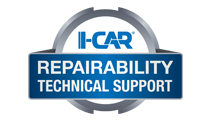
Welding While Wearing Contact Lenses
- Posted on 15 January 2015
Has anyone ever told you that if you wear contact lenses while welding that they can become fused to your eyes?
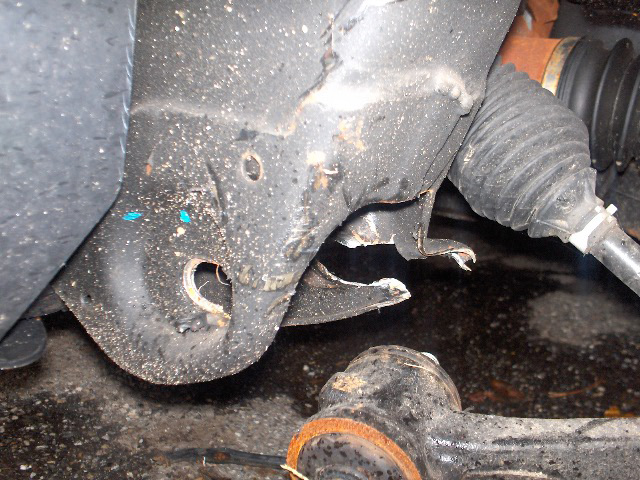
Damaged Steering or Suspension System Mounting Locations
- Posted on 07 January 2015
What does I-CAR say about damaged steering or suspension mounting locations?

Top 10 Cars of 2014
- Posted on 06 January 2015
Can you guess who tops the list of cars sold in America in 2014? These are the vehicles that are on the road and potentially in your collision repair facility.
Collision Hub's Favorite Things Of 2014
- Posted on 01 January 2015
To Wrap-up 2014 Collision Hub put together a video of there favorite things from 2014. There are some highlights on different tools and equipment.
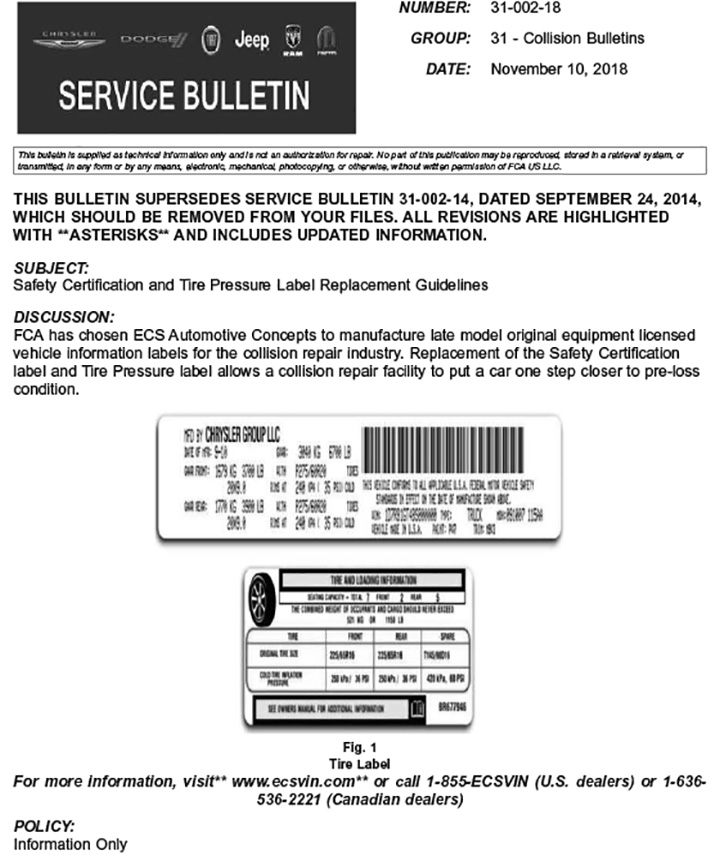
FCA/Stellantis Collision Bulletin: UPDATE
- Posted on 31 December 2014
We've added the Safety Certification and Tire Pressure Label Replacement Guidelines Collision Bulletin from FCA/Stellantis that addresses safety certification and tire pressure label replacement guidelines.

Kia Optima Bumper Cover Changes
- Posted on 30 December 2014
Having a problem getting your replacement Kia Optima bumper cover to fit properly? Wondering if maybe you got the wrong part?

What's A Chrysler/Dodge/Jeep/RAM Shotgun?
- Posted on 29 December 2014
When it comes to repair information, vehicle makers use a wide variety of terminology for replacement parts, but Chrysler, Dodge, Jeep, and RAM keep it pretty basic.

OEM Corrosion Protection Information Availability
- Posted on 26 December 2014
The ninth column in the OEM Technical Information Matrix is pretty straight forward: Corrosion Protection Methods and Materials. Most OEMs have information on anti-corrosion materials and application equipment including a list of approved materials and part numbers.
If You Do What You've Always Done ...
- Posted on 23 December 2014
Ever hear the quote: "if you do what you've always done, you'll get what you've always gotten"? When it comes to collision repairs, it's far from accurate.

What's A GM Center Pillar?
- Posted on 22 December 2014
When it comes to repair information, vehicle makers use a wide variety of terminology for replacement parts. All of the different names can be confusing, especially when repairing a variety of vehicle makes and models. Thankfully, General Motors (GM) uses terms that most of us are familiar with.
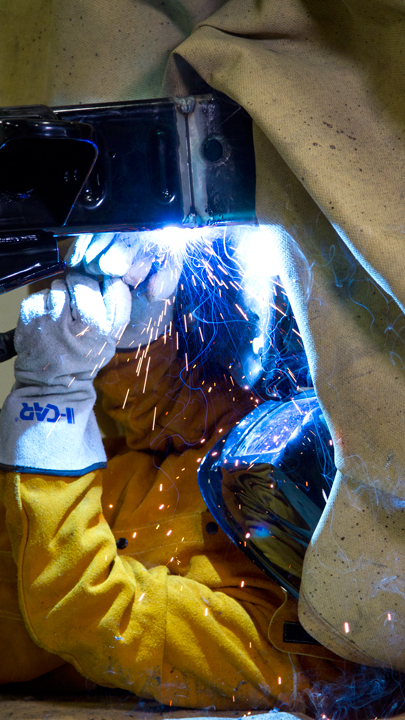
Today’s Advanced Vehicles Require Changes in Collision Repair Attachment Methods - Part 1
- Posted on 20 December 2014
This article originally appeared in the November/December edition of Fixed Ops Magazine.
Collision repair professionals are no different than any other professional – we are resistant to change. It took many years for repairers to make the switch to “MIG welding” for welding early unibody vehicles. (For this article we’ll use the term gas metal arc welding (GMAW) metal inert gas (MIG), or GMA (MIG)). (More on the reason, later.) It was a technology that was unfamiliar to many and there wasn’t a perceived need for change. History would prove otherwise, as there may not be a collision repair business in the country that doesn’t have a GMA (MIG) welder.
Audi Releases Repair Tip Videos For The A6 And A7
- Posted on 19 December 2014
When you visit the Audi OEM Information page on the RTS website, you will see a new icon for videos.
A New Way To Search The OEM Hybrid And Electric Vehicle Disable Feature
- Posted on 18 December 2014
With the latest addition of the OEM Hybrid And Electric Vehicle Disable Search to the RTS portal, we have also added a new icon to the OEM Information pages to help you with quicker access.
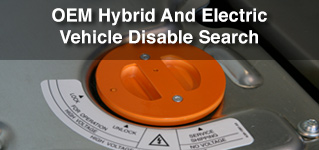
The OEM Hybrid and Electric Vehicle Disable Search Is Now Available
- Posted on 12 December 2014
A new search function is now avaialbe on the I-CAR Repairability Technical Support (RTS) Portal and we're calling it the OEM Hybrid and Electric Vehicle Disable Search.

How Do I Learn More About That?
- Posted on 12 December 2014
We've added a new feature to the RTS Portal to help you get more of the information that you are searching for through I-CAR training courses.
-
Toyota/Lexus/Scion Position Statement: Pre- and Post-Repair System Scanning
Thursday, 28 July 2016
As the industry continues to ask if pre- and post-repair system scanning is necessary, Toyota/Lexus/Scion provides their answer.
-
Pre- and Post-Repair System Scanning Statements
Wednesday, 9 January 2019
Are you wondering if a particular OEM or organization has a published statement on pre-repair and post-repair scanning? We have compiled a list of most of the statements on the subject, so you can...
-
ADAS, Calibration, And Scanning Article Hotspot
Monday, 14 January 2019
Since advanced driver assistance systems (ADAS), scanning, and calibration first started becoming relevant, members of the collision repair industry have required as much knowledge as possible on...
-
BMW Position Statement: Pre- and Post-Repair System Scanning - UPDATE
Friday, 10 April 2020
BMW has released a position statement related to pre- and post-repair system scanning. The statement applies to All vehicles equipped with on board diagnostics II (OBD II).
-
Honda/Acura Position Statement: Pre- and Post-Repair System Scanning - UPDATE
Wednesday, 22 May 2019
Honda /Acura has updated their position statement on pre- and post-repair scanning to give more clarification on what is expected for scanning.
-
Quickly Identifying Outer Quarter Panels w/Rolled Hem Flanges
Monday, 5 March 2018
The I-CAR best practice article, Recycled Outer Quarter Panels w/Rolled Hem Flanges has gotten a lot of interest from the collision repair industry. It’s important to know which vehicles are...
-
General Motors Position Statement: Pre- and Post-Repair System Scanning
Friday, 21 October 2016
As the industry continues to ask, are pre- and post-repair scans necessary, General Motors provides their answer.
-
Restraints Wiring Repairs
Monday, 23 May 2016
Over the past few months, we've been sharing OEM position statements on restraints wiring repairs. Now we're bringing them all together in one place for easy reference.
-
FCA/Stellantis Position Statement: Pre- and Post-Repair System Scanning
Thursday, 9 June 2016
FCA/Stellantis has released a position statement related to pre- and post-repair system scanning.
-
Typical Calibration Requirements For Forward Radar Sensors
Wednesday, 12 October 2016
Technicians should be aware of what’s required to keep advanced driver assistance systems (ADAS) running safely after a collision. Whether that be aiming a camera, which can cause a system to not...
-
SEMA 2025: EV Collision Solutions
Thursday, 5 March 2026
I-CAR had numerous presentations at the 2025 SEMA show. One of the presentations focuses on Midtronics high-voltage (HV) safety solutions.
-
I-CAR Repairers Realm: FCA/Stellantis Corrosion Protection Updates - Coming Soon
Wednesday, 4 March 2026
I-CAR is having a discussion on FCA/Stellantis corrosion protection updates.
-
Bumper Cover Repair With ADAS: Mazda - UPDATE
Tuesday, 3 March 2026
A simple bumper repair on a modern vehicle may not be as simple as it seems. New technologies like blind spot monitoring, adaptive cruise control, and other advanced driver assistance systems (ADAS)...
-
I-CAR Just In Time: Torque Wrench Use
Friday, 27 February 2026
Sometimes seeing is understanding, that’s why I-CAR's technical team created the Just in Time video series to guide you through a variety of collision repair topics from ADAS and EVs to repair tips...
-
I-CAR Repairers Realm: I-CAR Registered Apprenticeship Program - Now Available
Thursday, 26 February 2026
I-CAR had a discussion on the I-CAR Registered Apprentice Program (RAP).
-
Bumper Cover Repair With ADAS: FCA/Stellantis
Wednesday, 25 February 2026
A simple bumper repair on a modern vehicle may not be as simple as it seems. New technologies like blind spot monitoring, adaptive cruise control, and other advanced driver assistance systems (ADAS)...
-
I-CAR Just In Time: Digital Tram Gauge Basics And Steering Column Measurement Tips
Thursday, 19 February 2026
Sometimes seeing is understanding, that’s why I-CAR's technical team created the Just in Time video series to guide you through a variety of collision repair topics from ADAS and EVs to repair tips...
-
GM Repair Insights: Fall 2025
Tuesday, 17 February 2026
The fall edition of General Motors (GM) Repair Insights magazine is now available.
-
GM Repair Insights: Winter 2026
Tuesday, 17 February 2026
The winter edition of General Motors (GM) Repair Insights magazine is now available.
-
SEMA 2025: Three-Dimensional Measuring Presentations
Thursday, 12 February 2026
I-CAR had numerous presentations at the 2025 SEMA show. Two presentations featured information about three-dimensional measuring of vehicles.
- 2026
- March 2026 (3)
- February 2026 (11)
- January 2026 (11)
- 2025
- December 2025 (8)
- November 2025 (11)
- October 2025 (13)
- September 2025 (11)
- August 2025 (12)
- July 2025 (11)
- June 2025 (11)
- May 2025 (11)
- April 2025 (13)
- March 2025 (12)
- February 2025 (11)
- January 2025 (12)
- 2024
- December 2024 (8)
- November 2024 (10)
- October 2024 (13)
- September 2024 (10)
- August 2024 (12)
- July 2024 (11)
- June 2024 (9)
- May 2024 (13)
- April 2024 (12)
- March 2024 (12)
- February 2024 (12)
- January 2024 (9)
- 2023
- December 2023 (8)
- November 2023 (12)
- October 2023 (11)
- September 2023 (11)
- August 2023 (12)
- July 2023 (9)
- June 2023 (11)
- May 2023 (12)
- April 2023 (11)
- March 2023 (12)
- February 2023 (10)
- January 2023 (11)
- 2022
- December 2022 (11)
- November 2022 (12)
- October 2022 (11)
- September 2022 (13)
- August 2022 (11)
- July 2022 (10)
- June 2022 (13)
- May 2022 (11)
- April 2022 (12)
- March 2022 (10)
- February 2022 (11)
- January 2022 (13)
- 2021
- December 2021 (13)
- November 2021 (11)
- October 2021 (13)
- September 2021 (14)
- August 2021 (12)
- July 2021 (15)
- June 2021 (17)
- May 2021 (11)
- April 2021 (14)
- March 2021 (20)
- February 2021 (14)
- January 2021 (14)
- 2020
- December 2020 (13)
- November 2020 (17)
- October 2020 (12)
- September 2020 (14)
- August 2020 (11)
- July 2020 (18)
- June 2020 (14)
- May 2020 (14)
- April 2020 (19)
- March 2020 (12)
- February 2020 (13)
- January 2020 (14)
- 2019
- December 2019 (13)
- November 2019 (19)
- October 2019 (25)
- September 2019 (20)
- August 2019 (22)
- July 2019 (22)
- June 2019 (20)
- May 2019 (19)
- April 2019 (20)
- March 2019 (20)
- February 2019 (18)
- January 2019 (17)
- 2018
- December 2018 (18)
- November 2018 (19)
- October 2018 (17)
- September 2018 (16)
- August 2018 (21)
- July 2018 (20)
- June 2018 (21)
- May 2018 (16)
- April 2018 (19)
- March 2018 (21)
- February 2018 (15)
- January 2018 (20)
- 2017
- December 2017 (13)
- November 2017 (15)
- October 2017 (19)
- September 2017 (20)
- August 2017 (19)
- July 2017 (18)
- June 2017 (19)
- May 2017 (18)
- April 2017 (13)
- March 2017 (18)
- February 2017 (10)
- January 2017 (11)
- 2016
- December 2016 (9)
- November 2016 (14)
- October 2016 (21)
- September 2016 (10)
- August 2016 (11)
- July 2016 (8)
- June 2016 (10)
- May 2016 (5)
- April 2016 (11)
- March 2016 (12)
- February 2016 (10)
- January 2016 (8)
- 2015
- December 2015 (9)
- November 2015 (6)
- October 2015 (8)
- September 2015 (7)
- August 2015 (11)
- July 2015 (7)
- June 2015 (5)
- May 2015 (7)
- April 2015 (8)
- March 2015 (8)
- February 2015 (9)
- January 2015 (10)
- 2014
- December 2014 (12)
- November 2014 (7)
- October 2014 (11)
- September 2014 (10)
- August 2014 (9)
- July 2014 (12)
- June 2014 (9)
- May 2014 (12)
- April 2014 (9)
- March 2014 (6)
- February 2014 (1)
- January 2014 (26)
